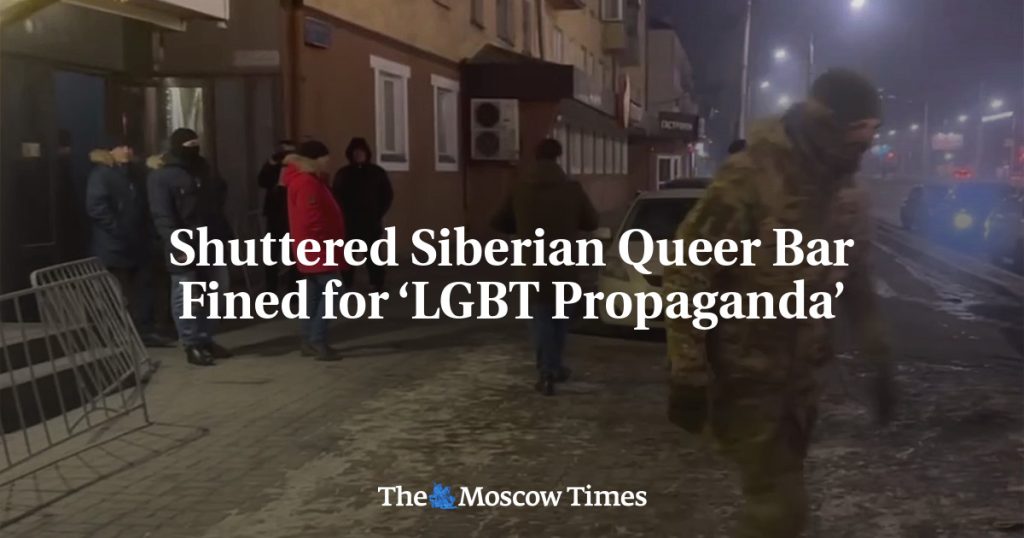A queer bar in the Siberian city of Krasnoyarsk, called Elton, has been fined for “LGBT propaganda” by local police after a raid in December. The legal entity that owns the bar was fined 450,000 rubles ($4,800) by the Sovetsky District Court. In February, Elton announced its closure following yet another police raid during a military holiday party that featured drag show performers in soldier uniforms. This comes amidst Russia’s Supreme Court designating the non-existent “international LGBT movement” as “extremist,” leading to a crackdown on gay nightlife venues and concerns about the persecution of LGBTQ+ individuals.
The situation in Krasnoyarsk is part of a broader crackdown on the LGBTQ+ community in Russia, with fears of persecution rising following the Supreme Court’s decision. Elton’s owner, Artyom Demchenko, has stated his intention to rename his other bar in Novosibirsk, also called Elton, after police accused it of “extremism.” The Novosibirsk Elton bar has since stopped putting on drag shows and has rebranded itself as a female-oriented venue in order to avoid further scrutiny. This move reflects the challenges faced by queer spaces in Russia, as they navigate restrictive laws and police raids in order to exist and provide safe spaces for the LGBTQ+ community amidst growing hostility.
The fines and closures of LGBTQ+ venues like Elton in Krasnoyarsk highlight the ongoing discrimination faced by the queer community in Russia. The use of “LGBT propaganda” as a basis for charging and penalizing such spaces demonstrates the state’s hostility towards LGBTQ+ individuals and their right to gather and express themselves in safe environments. Despite the challenges, members of the LGBTQ+ community and their allies continue to resist and find ways to exist and thrive in an increasingly hostile environment, underscoring the resilience and strength of marginalized communities in the face of adversity.
The decision to rename the Novosibirsk Elton bar and rebrand it as a female-oriented venue underscores the lengths to which LGBTQ+ spaces must go to avoid persecution and continue operating in Russia. By adapting and changing their focus, these spaces aim to fly under the radar and avoid drawing unwanted attention from authorities who seek to suppress their existence. This strategy reflects the resourcefulness and determination of LGBTQ+ individuals and venue owners in the face of systemic discrimination and threats to their safety and freedom.
The broader implications of the crackdown on LGBTQ+ venues in Russia signal a troubling trend towards increased repression of marginalized communities under the guise of upholding traditional values and combating “extremism.” The Supreme Court’s designation of the “international LGBT movement” as extremist has provided a legal basis for targeting LGBTQ+ spaces, events, and individuals, raising concerns about escalating persecution and discrimination. In response, members of the community and their allies must continue to resist and advocate for their rights in the face of adversity, drawing on their collective strength and solidarity to push back against oppressive laws and practices.















